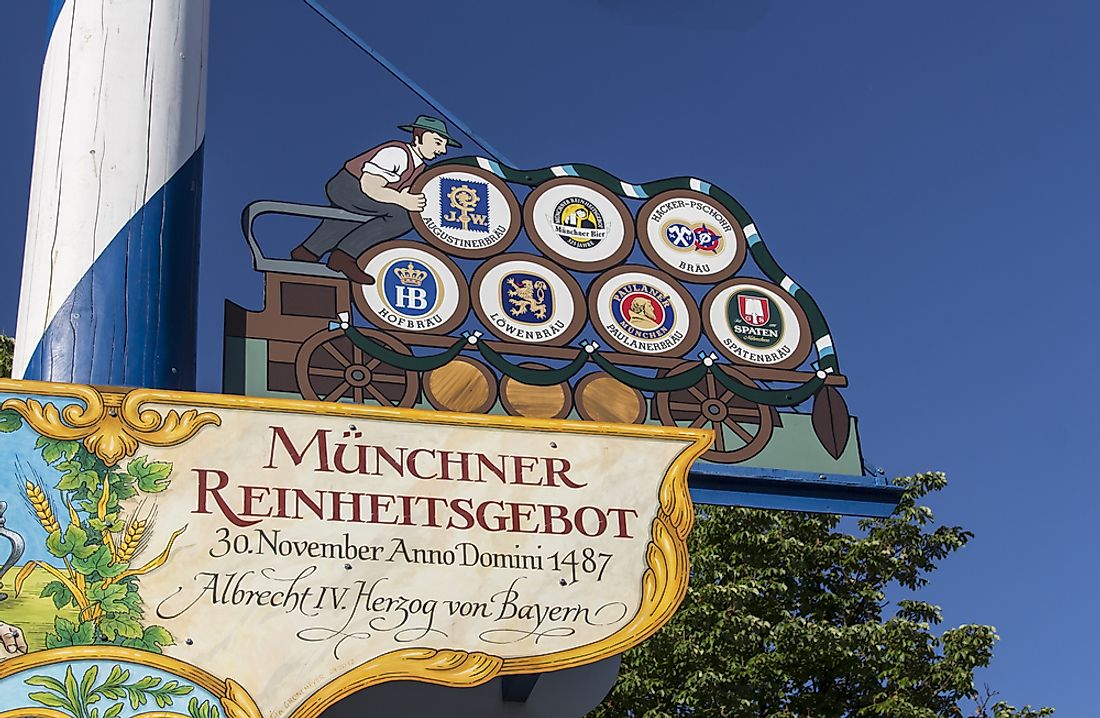What Is The German Beer Purity Law?

Germans take their beer seriously. Germany is the world's 4th largest beer-drinking country with a capita consumption of 104.7 liters. The German Beer Purity Law, or otherwise referred to as Reinheitsgebot in German, is a set of laws established to regulate the ingredients used in the brewing of beer. The laws were applicable in Germany and the former Holy Roman Empire. The most well-defined and the original German Beer Purity Law version was first used in 1516 in Bavaria. The modern regulations differ from the Bavarian regulations
Ingredients Used in Brewing in Germany
When the Bavarian orders were adopted in 1516, the only ingredients allowed in the beer manufacturing were water, hop, and barley. At the time, the role of yeast in fermentation was unknown and was therefore excluded in beer brewing. However, with time, the law was modified, leading to the addition of a number of other ingredients could be used to brew and add flavor to the beer.
History of the German Beer Purity Law
The predecessor of the Reinheitsgebot was adopted in 1487 in the duchy of Munich. The Munich law was adopted across Bavaria in 1516. The Bavarian Laws of 1516 on the regulation of beer making established a basis for the rule of beer making that gradually spread throughout Germany. The Law did not only regulate the ingredients used, but also the prices at which the beers were to be sold. The prices were regulated in order to manage the profits obtained by the beer vendors. Bavaria pushed for the adoption of the law in all of Germany during the Germany Unification of 1871. The law was rejected by brewers and some consumers who were not residents of Bavaria. In 1906, the law was applied all over Germany without much rejection from the people. Other than Germany, the Greeks and the Chinese voluntarily adopted the Bavarian Laws.
Penalty for Defying the Regulations
In March 1987, the German Beer Purity Law was described as protectionist by the ECJ (European Court of Justice). The ruling allowed Germany to import beer that contained a few other ingredients. Despite the new importation regulation, Germany still maintained the ingredients that could be used in the manufacturing of its local beer. The German Unification in 1990 was followed by a brewery in Neuzelle that sold black beer which contained sugar. The brewery company which was known as Neuzeller Kloster Brewery was asked not to use sugar as an ingredient. However, after a series of negotiations, the company was permitted to sell its beer on a condition that it is not labeled it as beer but instead label it as Schwarzer Abt (Black Abbot)
Modern Modifications to the Bavarian Law
The provisional Beer Law of 1993 was passed to ease the strict rules of the German Beer Purity Law. The law is more of a modification of the German Beer Purity Law. The new regulations accommodated water, hops, malted barley, yeast, hop extract, and malted grains. The laws also accommodated the used of pure sugar for coloring and flavoring of the beer. A fining agent like PVPP was also allowed as an ingredient for the brewing of beers in the country. A 2015 court ruling allowed the use of other ingredients and flavoring as long as the product is not labeled as "beer."











